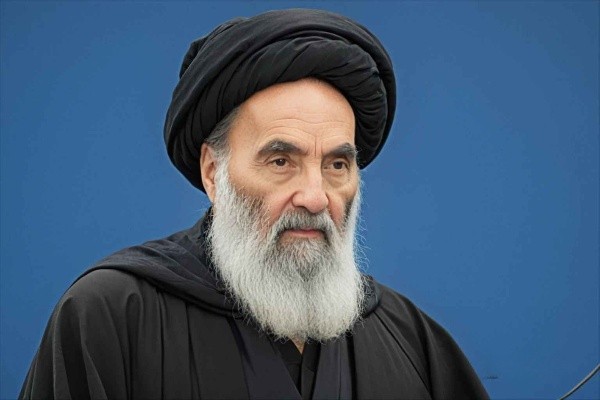Iran’s Plan to Strike Back Against the U.S.
Iran’s Military Preparations Following U.S. Attacks
Loading...

Washington’s envoy to Baghdad denounces Israeli broadcast that portrays Shia leader as a target for assassination.
Diplomatic Outrage Over Israeli Broadcast
The United States has expressed strong disapproval of an Israeli television broadcast that seemingly placed Grand Ayatollah Ali al-Sistani, a prominent Shia spiritual leader, on a hit list. The broadcast, aired by Israel's Channel 14, depicted al-Sistani's image with red crosshairs, alongside other figures considered adversaries of Israel, such as Hezbollah's Naim Qassem and Hamas leader Yahya Sinwar. This portrayal has sparked significant outrage across the Middle East, particularly among Shia communities.
US Ambassador to Iraq, Alina Romanowski, took to social media to denounce the broadcast, emphasizing al-Sistani's role as a respected religious leader who advocates for peace in the region. Romanowski stated, “Grand Ayatollah Sistani is a renowned and respected religious leader in the international community. He is a critical and influential voice in promoting a more peaceful region.” She firmly rejected any notion of targeting al-Sistani, reiterating the US commitment to supporting peace efforts in the area.
Al-Sistani's Influence and Public Perception
Grand Ayatollah Ali al-Sistani, who is 94 years old and originally from Iran, is regarded as one of the highest spiritual authorities among Shia Muslims. He resides in Najaf, south of Baghdad, and is known for his infrequent public appearances. His last widely recognized public engagement was a meeting with Pope Francis in 2021. Despite his limited visibility, al-Sistani's statements carry significant weight, often guiding his followers on critical political matters.
In 2014, for instance, he issued a religious decree urging Iraqis to mobilize against the Islamic State (ISIS), which led to the formation of volunteer paramilitary groups that played a crucial role in combating the extremist organization. These groups, some of which are linked to Iran, now operate under a coalition known as the Islamic Resistance in Iraq, which has recently conducted drone attacks against Israel, claiming to support Palestinians in Gaza and Hezbollah in Lebanon.
Iraqi Government's Response
The Iraqi government has also condemned the Israeli broadcast, labeling it a “heinous violation” that could exacerbate tensions and violence in the region. Iraqi Prime Minister Mohammed Shia al-Sudani described the portrayal of al-Sistani as an affront to all Muslims, emphasizing the need for respect towards revered religious figures. The Iraqi presidency called on the international community to take a firm stance against incitements of hatred and to support efforts to end aggression against Palestine and Lebanon.
Al-Sistani's office has previously condemned Israeli military actions, particularly following the recent escalation of violence in Lebanon. The office criticized Israel's “brutal aggression” and called for urgent efforts to protect the Lebanese people from its devastating impacts.
Conclusion
The backlash against the Israeli broadcast highlights the sensitive nature of religious and political figures in the Middle East. As tensions continue to rise, the US's condemnation of any threats against al-Sistani reflects a broader commitment to maintaining stability and promoting peace in a region fraught with conflict. The situation underscores the importance of dialogue and respect among nations and communities, particularly in times of heightened tensions.
Editor
Iran’s Military Preparations Following U.S. Attacks
Troops remain in five strategic locations, raising fears of renewed tensions and long-term occupation.
Opposition forces have taken control of the capital after a significant offensive. Here is how it unravelled.
